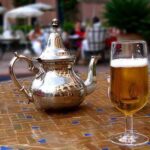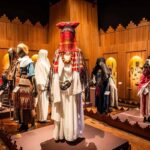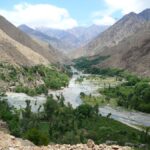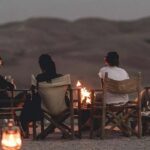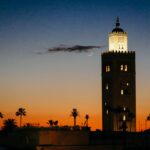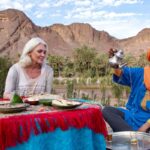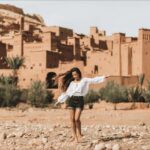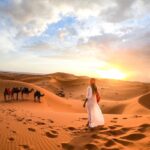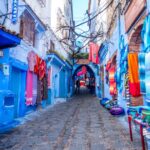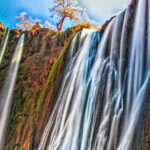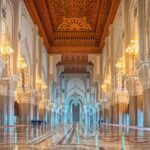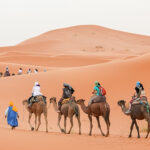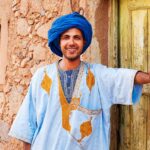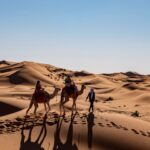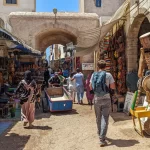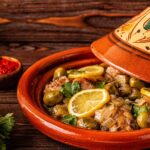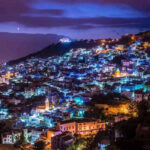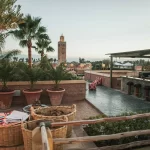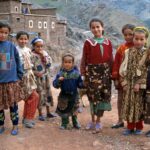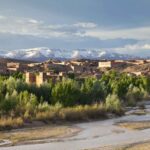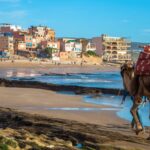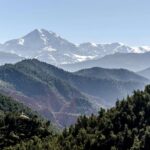Welcome to the enchanting world of Morocco, where vibrant landscapes, bustling markets, and rich cultural traditions await. As we embark on a new year, it’s time to delve into the wonders of this North African gem with our comprehensive Morocco Travel Guide.
From the bustling streets of Marrakesh to the sweeping dunes of the Sahara Desert, Morocco offers a tapestry of experiences that will captivate your senses and leave an indelible mark on your soul. Immerse yourself in the labyrinthine Medinas, where centuries-old architecture and vibrant souks invite you to wander through a maze of sights, sounds, and scents. Unearth hidden treasures, sip aromatic mint tea, and haggle for exotic spices, handcrafted rugs, and intricate ceramics.
Venture beyond the cities and discover the untamed beauty of the Atlas Mountains, where snow-capped peaks, lush valleys, and traditional Berber villages create a stunning backdrop for exhilarating hikes and unforgettable encounters. Traverse ancient caravan routes and witness the splendour of cascading waterfalls, verdant oases, and terraced gardens clinging to the mountainsides.
No journey through Morocco is complete without experiencing the breathtaking Sahara Desert. Embark on an exhilarating camel trek across golden sands, marvel at the mesmerizing play of light and shadow during sunrise and sunset, and spend nights under a blanket of stars in a traditional desert camp, immersing yourself in the timeless magic of this vast and awe-inspiring landscape.
As you explore the diverse regions of Morocco, indulge in the country’s gastronomic delights. From flavourful Tagines and aromatic couscous to delectable pastries and refreshing mint tea, each dish tells a story woven with spices and culinary traditions passed down through generations. Embrace the opportunity to savour the rich flavours and textures of Moroccan cuisine, and let your taste buds embark on a remarkable journey of their own.
Throughout our Morocco Travel Guide, we will uncover the must-see attractions, hidden gems, and immersive cultural experiences that make this country a traveler’s dream. From the historical wonders of Fes and the blue-hued streets of Chefchaouen to the coastal charm of Essaouira and the cosmopolitan allure of Casablanca, we will guide you through the diverse tapestry of Morocco’s cities, towns, and natural wonders.
Get ready to embark on a voyage of discovery, where ancient traditions blend harmoniously with modern influences, and the warm hospitality of the Moroccan people will make you feel like a cherished guest. Whether you seek adventure, cultural immersion, or relaxation, Morocco offers a world of possibilities that will create lasting memories and ignite your sense of wonder.
Join us as we unlock the secrets of Morocco and invite you to embark on a transformative journey through this captivating country. Let the Morocco Travel Guide be your compass, guiding you to the heart of an unforgettable Moroccan adventure.
Table of contents
- General Information:
- Where to Visit in Morocco:
- Best Time to Visit Morocco:
- Traveling to Morocco:
- 10 Best Places to Visit in Morocco:
- Morocco Tour Itineraries
- Accommodation in Morocco:
- Food and Beverages in Morocco:
- Moroccan Etiquette and Culture:
- Safety in Morocco:
- Health Advice for Traveling to Morocco:
- Cost of Travel in Morocco:
- Visa Requirements for Morocco:
- Shopping in Morocco:
- Outdoor Activities in Morocco:
- The Berbers and Arabs in Morocco:
- Conclusion
General Information:
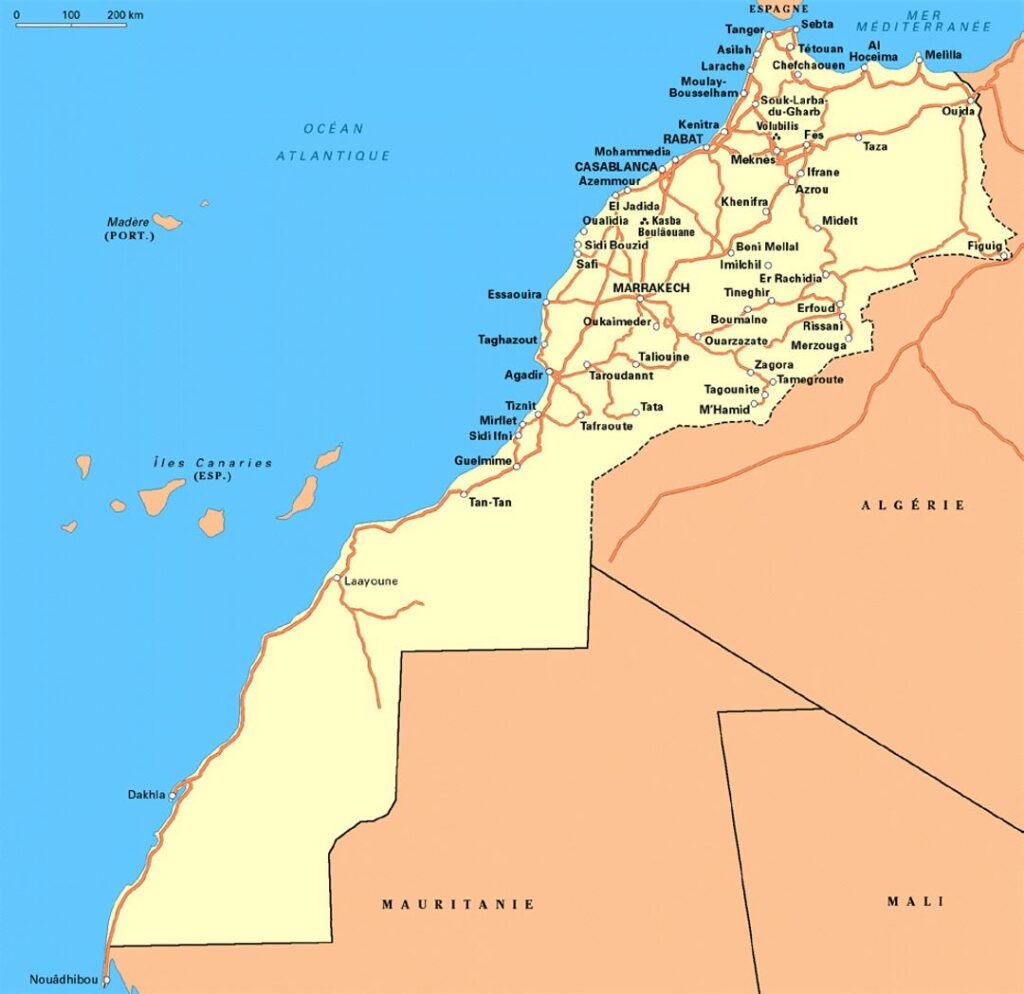
Morocco, with its diverse geography and rich culture, spans across 446,550 square kilometers. From the majestic Atlas Mountains to the vast Sahara Desert, this enchanting country offers a myriad of exploration opportunities. With a population of 37 million people, Morocco ranks among the most populous nations in Africa.
Size and Population: Covering an area of 446,550 square kilometers, Morocco stands out for its geographical diversity and cultural richness. Its captivating landscapes range from the snow-capped peaks of the Atlas Mountains to the sprawling expanse of the Sahara Desert. With a population of 37 million people, Morocco is one of Africa’s most densely inhabited countries.
Youthful Population:
Morocco boasts a vibrant young population, with 27% of its citizens aged below 15. This youthful demographic not only infuses energy into the workforce but also presents immense potential for future economic growth. As of 2018, the median age in Morocco was 29, indicating that half the population is younger than this. The country’s substantial youth population sets the stage for a promising future.
Religion:
The overwhelming majority of Moroccans follow the Islamic faith, constituting nearly the entire population. Christianity represents only 1% of the religious affiliation, while a small minority of approximately 6,000 people follow the Jewish faith.
Languages:
Morocco embraces a diverse linguistic landscape. Arabic, Berber (including Tarfit, Tamazight, and Tashelhaït), and French are all officially recognized languages. Additionally, Spanish remains prevalent in the northern territories, and English has gained popularity among the younger generation, particularly those residing near tourist hotspots.
Political Landscape:
On March 2, 1956, Morocco achieved independence from French and Spanish rule. King Mohammed VI ascended to the throne on July 30, 1999, succeeding his father, Hassan II. The country’s current government is elected by the legislature, and is led by Prime Minister Aziz Akhannouch from the NRI (Party of the National Rally of Independents).
Education:
Morocco’s literacy rate stands at 68.5%, with 78.6% for men and 58.8% for women. This indicates that over two-thirds of the population possesses the ability to read and write.
Where to Visit in Morocco:
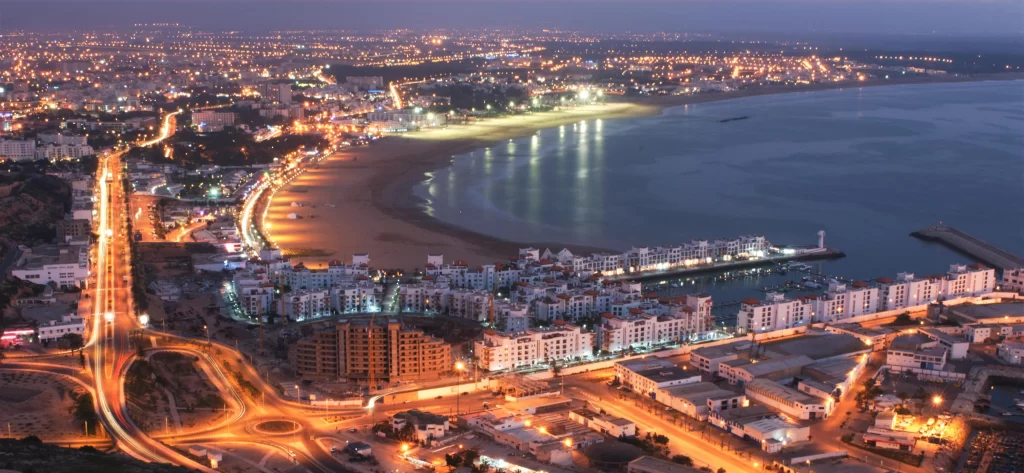
Morocco offers a range of captivating destinations to explore. Whether you seek relaxation on the coast, discovery in ancient cities, awe-inspiring mountain landscapes, the serene solitude of the Sahara Desert, or just taking day trips from Marrakech, Morocco will leave an indelible impression.
To immerse yourself in Morocco’s coastal beauty, venture to Tangier, Asilah, and Larache. For enchanting experiences along the south coast, El Jadida, Essaouria, and Sidi Ifni offer a plethora of wonders. Agadir serves as a convenient gateway for further explorations.
Fez and Marrakesh provide unparalleled cultural encounters. These cities boast abundant historical sites, with Fez showcasing grand landmarks while receiving fewer visitors compared to its counterpart, Marrakech. Rabat and Casablanca, bustling urban centers, offer a stark contrast to the ancient ambiance of Fez and Marrakesh, catering to those seeking modernity.
The Rif and Atlas mountains boast breathtaking scenery, making them North Africa’s prized gems. Surprisingly, these mountain ranges are easily accessible for trekking and exploration. Jebel Toubkal, North Africa’s highest peak, attracts hikers, while Chefchaouen, nestled in the Rif Mountains, is often considered Morocco’s most beautiful town—a true hidden gem.
For further exploration beyond the Atlas Mountains, the pre-Saharan region beckons. The oases surrounding Tinghir, Skoura, Zagora, Erfoud, and Tata showcase a mesmerizing contrast of palm trees and desert horizons.
If you desire to venture off the beaten path, consider exploring these five unspoiled locations in Morocco. This list will introduce you to lesser-known sites and help you discover even more places worth visiting.
Best Time to Visit Morocco:
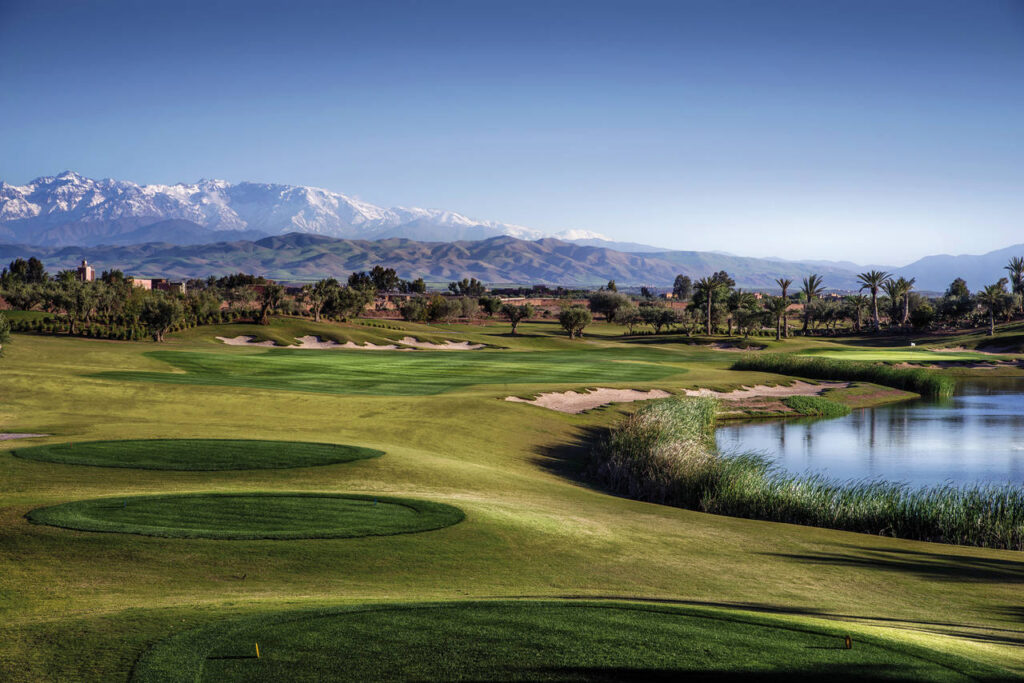
For optimal weather conditions, the best time to visit Morocco is during the spring months of April and May, as well as the early autumn months of September and October. During this period, the climate is pleasant and summery, providing ideal conditions for exploring the country. However, it’s important to note that the height of summer can bring intense heat, particularly in the southern regions, making daytime sightseeing challenging. Winter, on the other hand, offers an excellent opportunity to explore the south and the Sahara without the scorching heat, although it can get quite cold at night.
Traveling to Morocco:
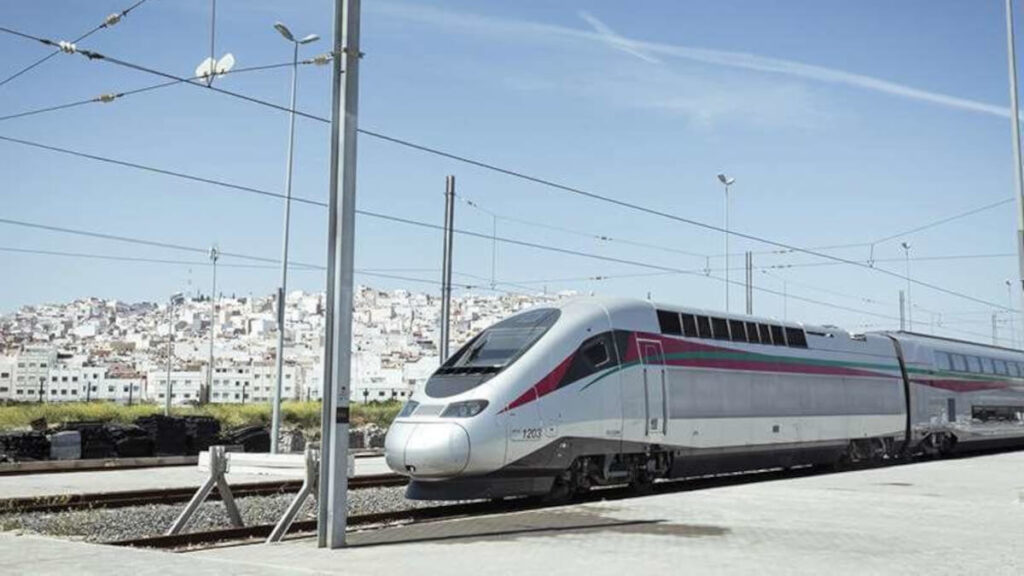
When planning your trip to Morocco, the most convenient way to arrive is by flying into either Casablanca’s Mohammed V International Airport or Marrakesh’s Menara Airport. It’s worth noting that fares tend to be higher during peak times such as Christmas, New Year, and the months of July and August as the Moroccan diaspora tend to visit their home country during summer vacations. Additionally, flights on weekends often come with higher price tags. To secure the best deals, it is advisable to book your flight as early as possible.
Traveling to Morocco from Europe:
If you are traveling from the UK to Morocco, both Royal Air Maroc and British Airways offer direct flights from London Heathrow Airport (LHR) to Casablanca Mohammed V International Airport (CMN), as well as from Gatwick Airport (LGW) to Marrakesh Menara Airport (RAK). Alternatively, you can find indirect flights with layovers in major European cities such as Paris or Amsterdam.
Flying to Morocco from the US, Canada, Australia, and New Zealand:
Travelers from the US and Canada can enjoy direct flights to Casablanca from New York, Washignton DC, Miami, Toronto and Montreal, operated by Royal Air Maroc or Air Canada. European airlines also provide indirect services, allowing passengers to transfer at one of Europe’s major hubs. Unfortunately, there are no non-stop flights between Morocco and Australia, New Zealand, or South Africa. However, travelers from these regions can opt for indirect journeys via connecting flights in Europe or the Middle East.
Getting Around Morocco:
Morocco offers various transportation options to navigate the country’s stunning landscapes. The rail network connects major towns in the northern regions, while numerous bus companies operate throughout the country. Although buses can sometimes be slow and crowded, they remain a viable option for shorter journeys. For longer trips, grand taxis are a popular choice. These taxis typically accommodate six passengers, providing a more comfortable ride. Sharing the cost with fellow travelers also helps save money.
10 Best Places to Visit in Morocco:
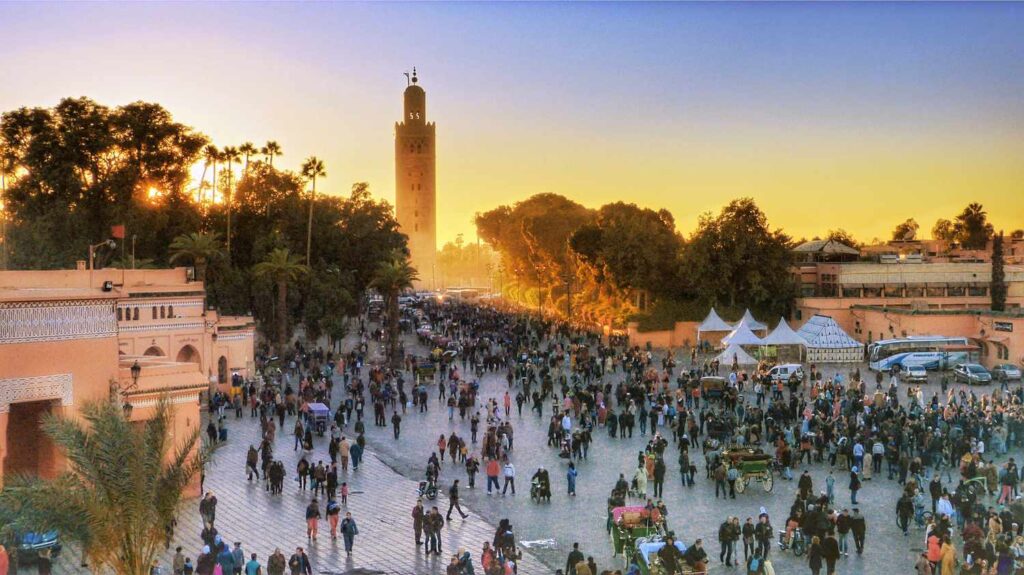
Morocco is a country brimming with captivating destinations, making it challenging to choose where to go. To assist you in making the best decisions, we have curated a list of the top ten must-visit attractions in this remarkable country. From the vibrant Marrakech to the majestic Atlas Mountains, Morocco offers something for every traveler.
Chefchaouen:
Nestled in the Rif Mountains, Chefchaouen is one of Morocco’s most picturesque and inviting towns. Its Medina boasts stunning pastel-blue houses, creating a captivating atmosphere that’s perfect for exploration.
The Koutoubia Mosque:
A shining example of Almohad architecture in North Africa, the Koutoubia Mosque impresses with its beautifully proportioned structure and an elegant minaret that graces the skyline.
Ouirgane:
Located at the foot of the towering High Atlas Mountains, Ouirgane is a nature lover’s paradise. Tranquil hiking trails, breathtaking views, and a plethora of invigorating outdoor activities make this area an irresistible destination, particularly during the cooler months.
Ouzoud Waterfalls:
For a magnificent waterfall experience, the Ouzoud Waterfalls won’t disappoint. With overhanging cafes and a thunderous cascade of water plunging into the pools below, this natural wonder offers a dramatic and unforgettable sight.
Fez:
Stepping into Fez feels like entering a time capsule. Its labyrinthine streets and hidden treasures transport visitors to another world. From the iconic Medersa Bou Inania to the bustling souks, Fez offers a diverse array of attractions for every traveler.
Telouet:
The kasbah of Telouet is an abandoned fortress that harks back to the days when the Glaoui clan ruled over the Atlas Mountains and Marrakesh. This imposing structure dominates the surrounding landscape, providing a glimpse into a bygone era and offering a captivating experience for visitors.
Essaouira:
An idyllic coastal oasis, Essaouira has long been a melting pot of cultures and lifestyles. With its picturesque Medina, refreshing beachfront, thriving arts scene, and a variety of dining options, this city offers a relaxed getaway from Morocco’s more bustling destinations.
Casablanca:
Casablanca’s architecture beautifully fuses traditional Moroccan designs with French Art Deco, creating a unique Mauresque style. The city is also home to the magnificent Hassan II Mosque, one of the world’s largest, which welcomes non-Muslim visitors to admire its grandeur.
Asilah:
With its rich history and vibrant culture, Asilah is a charming beach town worth exploring. Its Medina showcases beautiful pastel-washed buildings, and the International Arts Festival attracts art lovers from around the world. Additionally, the town boasts the best beach on the northwest coast, offering a perfect setting for relaxation by the Mediterranean Sea.
Volubilis and Moulay Idriss:
Volubilis, a splendid Roman ruin, is a must-visit destination. With its remarkably preserved structures and breathtaking views, this site showcases the grandeur of ancient times. Nearby, the holy Islamic town of Moulay Idriss, though small, exudes character and provides an enriching cultural experience.
With these ten outstanding places, your journey through Morocco will be filled with unforgettable moments and endless discoveries.
Morocco Tour Itineraries
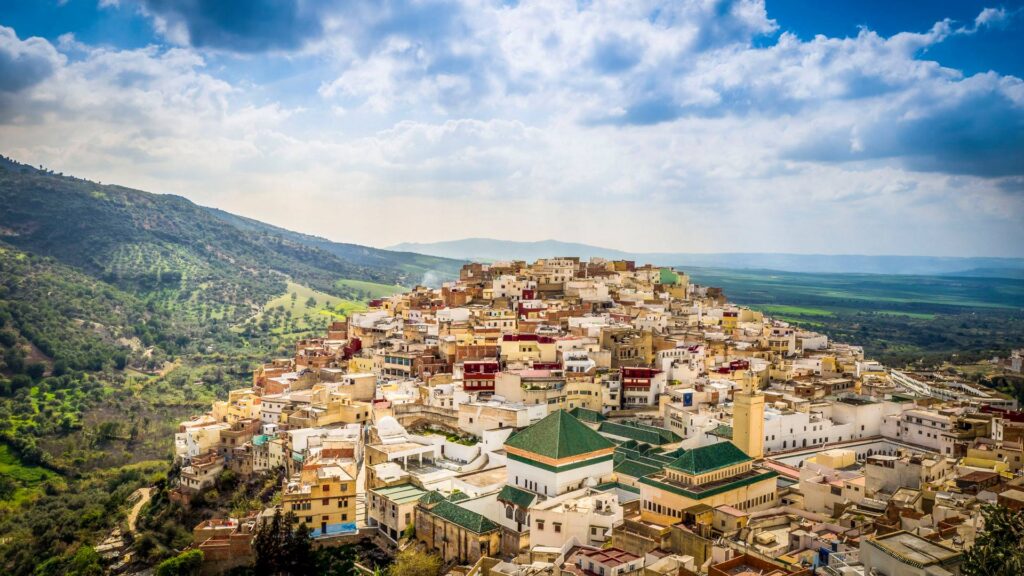
When planning your trip to Morocco, take into consideration the sights and activities you wish to experience and determine the ideal duration for your Morocco tour. Whether you aspire to explore the vibrant old cities of Marrakesh and Fez, embark on exhilarating hikes in the Rif and Atlas mountains, or immerse yourself in the tranquility of the Sahara, you can tailor your Morocco desert tours to suit your preferences. Our dedicated sales team is available to assist you in creating a customized itinerary for your perfect Moroccan holiday.
Accommodation in Morocco:
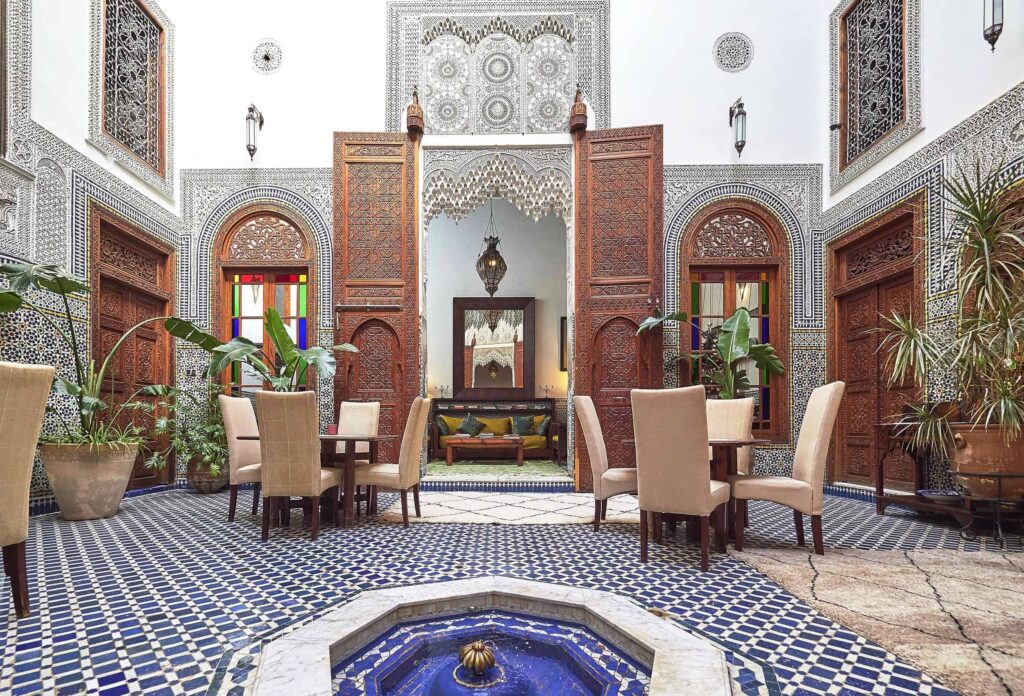
When seeking accommodations in Morocco, it’s important to note that hotels in major cities and resorts tend to be quite busy during the summer months. To ensure a wider range of options, it is advisable to book your hotel room well in advance. If you plan to visit Morocco during the winter, be sure to inquire whether the hotel provides heating, as temperatures can become very cold, and bedding may be insufficient. Considering these factors, Morocco offers a wealth of excellent accommodation choices to cater to various budgets and requirements.
Hotels:
When selecting a hotel in Morocco, you can choose between unclassified hotels, which are often more affordable but can still offer advantageous locations, and classified hotels, which typically come at a higher price point and may provide a higher quality experience, though this is not guaranteed. Conducting thorough research before making a booking allows you to set appropriate expectations and make an informed decision that aligns with your needs and budget.
Riads:
For a unique experience in Morocco, consider staying in a riad or Maison d’hôte. These are typically renovated 18th- or 19th-century townhouses located in the Medina. While riads generally come at a higher cost than hotels, they provide a more refined and elegant stay. To be classified as a riad, the property must have a garden, often divided into quarters with a central fountain. Townhouses with rooms surrounding a courtyard are referred to as Dars, offering another charming option for accommodation.
Money matters:
The official currency of Morocco is the Moroccan dirham (MAD), divided into 100 Santimat. However, it’s important to note that the Dirham is a closed currency, meaning it cannot be taken in or out of Morocco. As a result, converting your British pounds to Moroccan dirham online may require assistance.
When it comes to using cash in Morocco, it is advisable to bring money with you and exchange it upon arrival. Alternatively, you can withdraw Moroccan currency from ATMs using your debit card, but keep in mind that your bank may impose charges for this service.
In larger cities, most shops and restaurants accept credit cards, although you may be subject to processing fees. There is no limit on the amount of foreign cash you can bring into Morocco, and US Dollars, Euros, and British pounds can be exchanged without difficulty. However, please be aware that Australian Dollars, as well as Scottish or Northern Irish banknotes, may not be accepted for exchange. Traveler’s cheques can also be challenging to exchange in Morocco. Therefore, a currency card can be a more convenient option for managing your travel money.
Since Moroccan dirhams cannot be taken out of the country, it is advisable to spend or convert any remaining dirhams before leaving. To avoid currency conversion fees, plan your spending accordingly and ensure you have sufficient funds before returning home.
While you can exchange money at the airport upon arrival, independent exchange booths in town often offer better rates. It is recommended to keep the receipt for any remaining dirhams at the end of your stay. This way, you can withdraw cash as needed during your trip, avoiding the inconvenience of carrying excess notes or coins in your pocket.
Food and Beverages in Morocco:
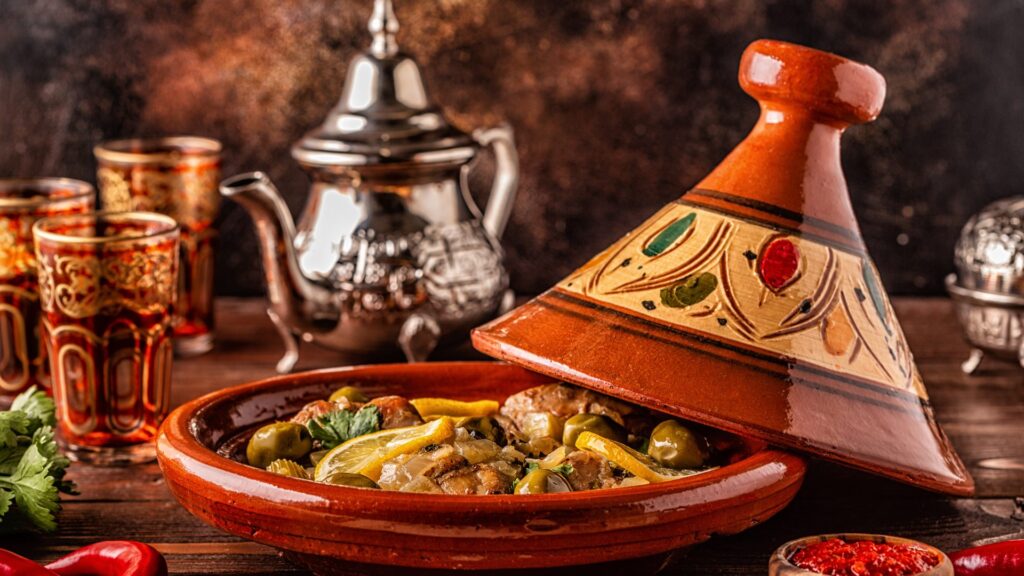
Culinary Delights in Morocco:
To immerse yourself in the flavors of authentic Moroccan cuisine, start your culinary journey with the classic Harira soup. In almost every restaurant, you’ll find Tajines, slow-cooked dishes combining beans, beef, and aromatic spices. Traditional Tagines feature lamb with prunes and almonds, chicken with olives and lemon, and couscous served alongside various flavourful accompaniments. For a unique taste experience, indulge in Pastilla, a savoury meat pie crafted with delicate filo pastry. Camel meat is also a noteworthy component of Moroccan gastronomy. While street food options are limited in Morocco, you can explore a vibrant array of stalls and street vendors in Marrakech Medina.
Refreshing Drinks in Morocco:
Morocco’s national beverage is Mint tea, a fragrant blend that can be enjoyed alongside an extensive selection of teas and herbal infusions. Nus-Nus, a delightful combination of coffee and milk, is a popular drink across the country. You’ll also find an abundance of freshly squeezed juices available at cafes and street stalls, offering a refreshing and revitalizing option. While tap water is generally safe, many tourists prefer to opt for bottled mineral water. As a predominantly Muslim country, alcohol consumption in Morocco is not a significant aspect of local culture. However, you can still find alcoholic beverages in bars and larger hotels for those who wish to indulge.
Moroccan Etiquette and Culture:
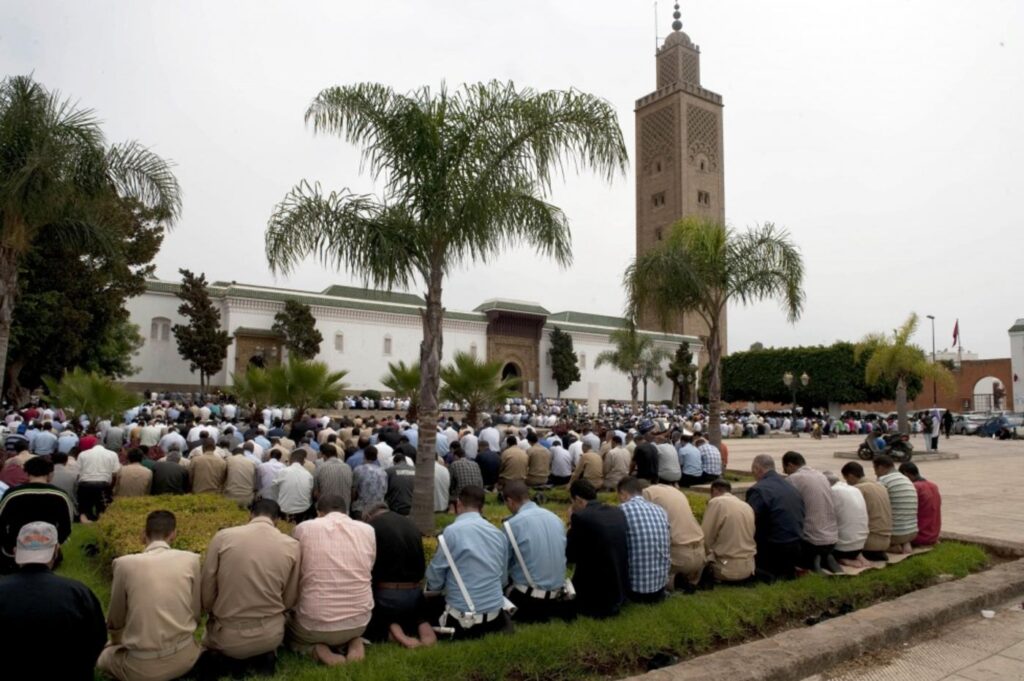
Morocco is renowned for its welcoming and tolerant people, making it a great destination for tourists. However, it is important to respect local customs and religious beliefs to avoid inadvertently causing offense. During Ramadan, for example, it is advisable to refrain from wearing revealing clothing or engaging in public displays of affection, as this can create difficulties. When visiting rural areas, where people may be more sensitive to the exposure of body parts considered private, it is best to dress modestly and follow the local dress norms.
Dealing with Sexual Harassment:
Sexual harassment is a problem that has developed over time in Morocco. Some Moroccan men may misunderstand Western cultural attitudes towards sex, leading to persistent and unpleasant experiences of sexual harassment for women travelers. While this behavior can be highly frustrating, it rarely escalates to a threatening or violent level. To minimize the chances of harassment, it is recommended to take similar precautions as you would in your home country.
Safety in Morocco:
Morocco is generally a safe country to visit, but it is important to be aware of certain aspects related to crime. While the overall crime rate is low, instances of pickpocketing and credit card fraud are relatively common. Taking precautions such as carrying limited amounts of cash and keeping valuables secure and within sight can help mitigate these risks. Additionally, when paying by credit card, ensure that it remains visible to prevent any possibility of theft.
Avoiding Scams:
To steer clear of scams and fraudsters in Morocco, it is advisable to engage only accredited guides who can be identified by their large, brass « sheriff’s badge. » Unlicensed guides approaching you on the street may be genuine, but it is challenging to ascertain their legitimacy. During city tours, whether official or unofficial, make it clear that you are not interested in shopping or being taken to specific hotels. Often, these establishments offer the guide a commission, which can later be added to your bill. If you find yourself in a store, typically selling carpets, do not feel pressured to make a purchase regardless of the intensity of hard-sell tactics or potential abuse. To avoid these scams, it is recommended to contact Marrakech Desert Trips to arrange a guided Medina tour on your behalf.
Health Advice for Traveling to Morocco:
Medical Care in Morocco: For minor health issues, pharmacies in Morocco offer a wide range of medications that are generally sufficient. However, if you require more serious medical treatment that necessitates hospital care, state hospitals in major cities can handle cases up to minor surgical procedures. In the case of more severe conditions, seeking treatment at a private clinic or considering repatriation may be the best course of action.
Vaccinations for Traveling to Morocco:
Currently, there are no mandatory vaccinations for visiting Morocco. However, it is essential to ensure that routine vaccinations for polio and tetanus are up to date. Additionally, for longer stays in Morocco, vaccinations against typhoid, hepatitis A and B, tuberculosis, diphtheria, and rabies may be recommended. Although malaria exists in Morocco, the strains are not life-threatening, and taking antimalarial medication is not necessary unless you fall ill. To prevent mosquito bites, it is advisable to apply repellent to all exposed areas of your skin. It’s worth noting that street dogs in Morocco can sometimes be aggressive and potentially carry rabies. It is best to avoid close contact with them, and if bitten, seek immediate medical assistance.
COVID-19:
As of now, the Moroccan government has lifted all restrictions on incoming travel, including land, air, and sea travel. The only requirement is for each traveler to present a completed health form upon arrival. It is recommended to download and complete the form before your trip. However, if you forget or are unable to do so, the forms will also be available at airports and ports upon arrival in Morocco.
For the most up-to-date information regarding COVID-19 and its impact in Morocco, please refer to the following link: http://www.covidmaroc.ma/
Cost of Travel in Morocco:
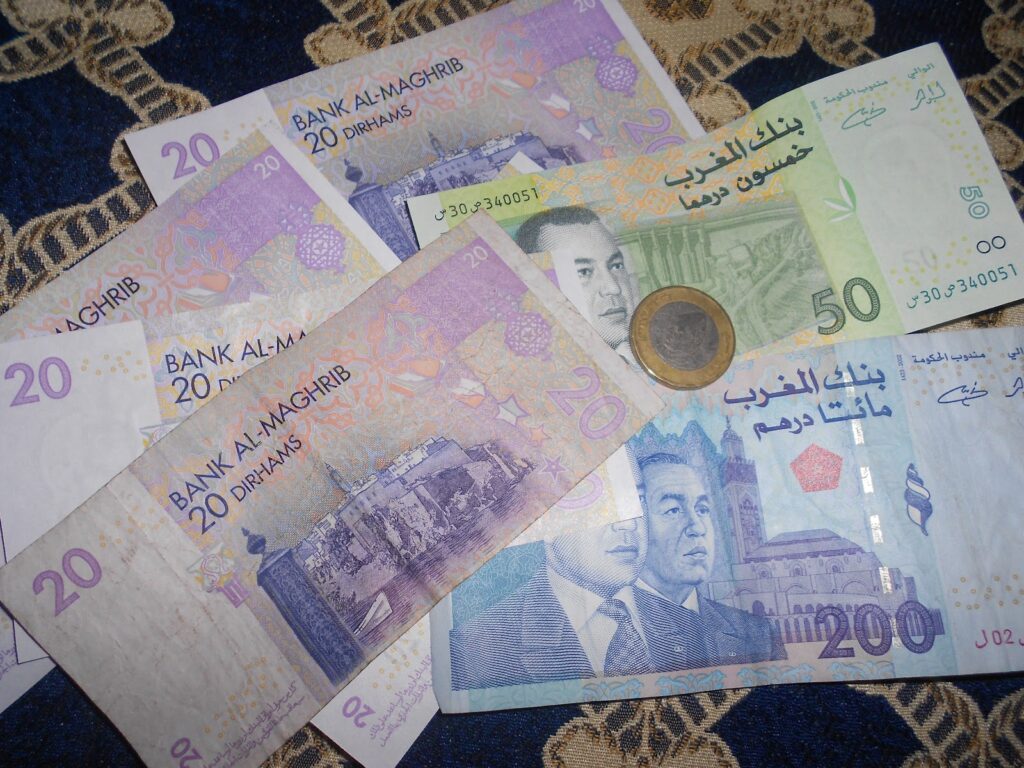
Morocco is a fantastic destination for travelers on a budget. Compared to Europe and North America, the costs of food, accommodation, and transportation in Morocco are generally lower.
Accommodation Prices:
Affordable accommodation options can be found for as little as €15/£13.50/$17.50 per night for a basic double room in a hotel. However, if you prefer luxury accommodations, top-rated hotels or riads may charge up to €500/£450/$590 per night.
Food Prices:
Food costs in Morocco are quite reasonable, especially when compared to Western prices. A meal at a basic restaurant can cost as little as €6/£5.50/$7, while higher-end establishments may charge up to €75/£67/$88 for a dining experience. It’s worth noting that alcohol prices in Morocco are comparable to Western prices.
Transportation Prices:
Traveling around Morocco doesn’t have to be expensive. While renting a car may come with a higher price tag, trains, buses, and shared taxis offer more affordable transportation options. By utilizing these modes of transport, you can save money while exploring the incredible sights and experiences that Morocco has to offer.
Visa Requirements for Morocco:
Travelers holding full passports from the UK, US, Ireland, Canada, Australia, New Zealand, or any EU country can enter Morocco without a visa and stay for up to 90 days. However, it is crucial to check the visa requirements before your departure, as regulations may change. Upon arrival in Morocco, you will be required to complete a form providing your personal details, profession, and purpose of visit. Please note that South African citizens are required to obtain a visa before entering Morocco, and they should submit their applications to the Moroccan embassy or consulate in their country of residence.
For the most up-to-date and detailed information, please visit the following website: https://www.consulat.ma/en/list-countries-whose-citizens-are-exempted-entry-visa-morocco
Shopping in Morocco:
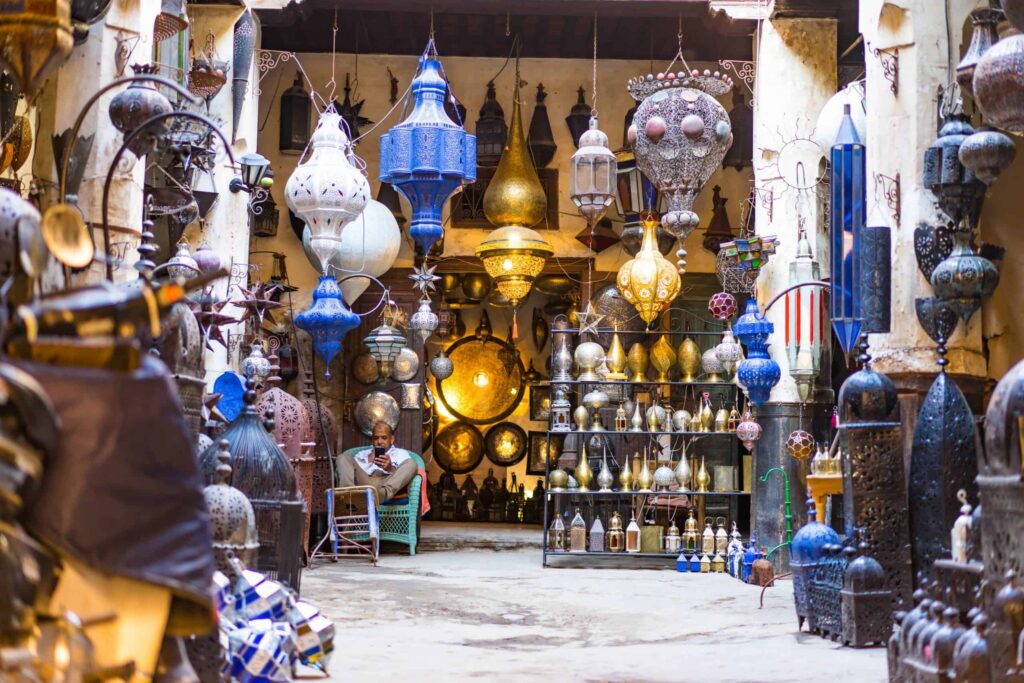
The markets in Morocco, known as souks, are a major draw for tourists, offering a vibrant and immersive shopping experience. While souks can be found in every town across the country, some of the most impressive ones are located in Fez and Marrakesh. When exploring these markets and considering your purchases, it is important to keep in mind how you will transport your items back home. Additionally, it is advisable to exercise caution to avoid purchasing any counterfeit or fake merchandise. To ensure an authentic and memorable shopping experience, consider these tips and explore the wide range of unique Moroccan gifts and products available:
Craftwork Items:
Moroccan markets are a treasure trove of beautifully crafted items, such as leather goods, pottery, textiles, carpets, metalwork, and woodwork. From intricately designed lanterns to handwoven rugs and traditional ceramics, there are countless opportunities to discover unique pieces that showcase Morocco’s rich artisanal heritage.
Semi-Precious Stones and Fossils:
Morocco is renowned for its abundance of semi-precious stones and fossils. Explore stalls offering stunning pieces of jewelry made with vibrant gems like amethyst, turquoise, and onyx. Alternatively, fossils of ancient sea creatures and plant life can be found, particularly in regions like Erfoud and Rissani.
Food and Spices:
Indulge your taste buds by exploring the diverse culinary delights found in Moroccan markets. Discover aromatic spices, such as saffron, cumin, and paprika, which are key ingredients in Moroccan cuisine. Traditional Moroccan tea sets, complete with beautifully designed glasses and tea pots, are also popular choices. Don’t forget to sample local treats like dates, honey, and traditional pastries.
When shopping in Moroccan markets, haggling is an integral part of the experience. Negotiating prices with vendors is customary, and skillful haggling can often lead to great bargains. Remember to be polite and respectful throughout the process. By embracing the unique atmosphere of the souks and engaging with local artisans and vendors, you can make your shopping experience in Morocco truly memorable.
Outdoor Activities in Morocco:
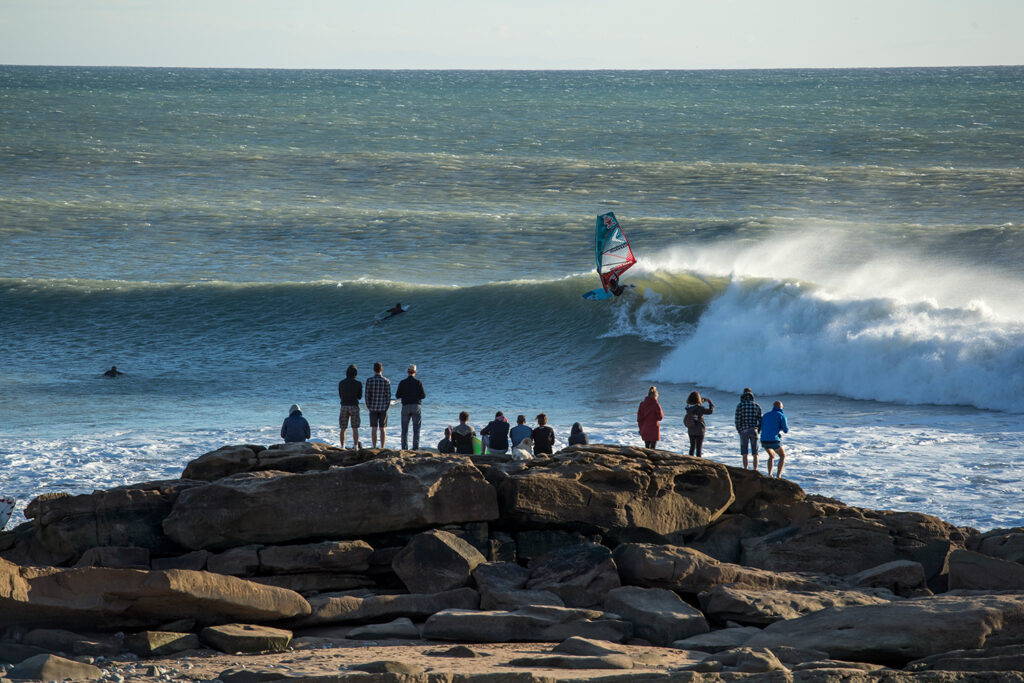
Morocco offers a plethora of outdoor activities that cater to various interests and skill levels. From trekking through stunning mountain ranges to skiing down snow-covered slopes, and exploring the desert on camelback, there is something for everyone. Additionally, the country’s coastal regions provide ample opportunities for fishing, watersports, and golfing.
Trekking:
Morocco’s High Atlas Mountains offer breathtaking scenery and excellent trekking opportunities. Popular routes include hikes in the Jebel Toubkal area, Jebel Sirwa, the western High Atlas Mountains, and the winter destinations of Jebel Saghro and the Tafraoute region in the Anti-Atlas. The Middle Atlas region also boasts beautiful walks and hikes, such as those around Tazzeka (Taza) and Azrou.
Skiing:
Despite not being widely known as a skiing destination, Morocco boasts excellent ski resorts in the High Atlas Mountains. Oukaïmeden ski resort provides fantastic skiing conditions from late January through early April. The Toubkal massif offers challenging slopes and stunning scenery for off-piste skiing. Azilal, Ait Bou Guemaz, and the Ighil Mgoun areas are also worth exploring for skiing and snowboarding enthusiasts.
Camel Trekking: Embark on a camel trek through the Sahara Desert for an authentic and memorable experience. Riding a camel allows you to immerse yourself in the tradition and history of desert regions. Discover the unique landscapes of the Moroccan Sahara and enjoy the tranquility of the desert.
Fishing:
Morocco’s extensive coastline and beautiful lakes provide excellent fishing opportunities. From Safi to Essaouira, Moulay Bousselham to Boujdour and Dakhla, there are numerous spots for boat trips and fishing excursions. In the Middle Atlas region, Aguelmame Azizgza near Khenifra offers serene beauty with its glistening lakes teeming with trout and pike. Other locations such as Bin el Ouidaine near Beni Mellal and Aghmas Lakes near Azrou provide fantastic fishing experiences.
Watersports:
Agadir is a hub for water sports enthusiasts, offering activities such as sailing, yachting, windsurfing, and diving. Taghazout, located north of Agadir, is a renowned surfing village with excellent surfing spots. Essaouira attracts windsurfing enthusiasts with its consistently windy coastline. Swimming, surfing, and windsurfing can also be enjoyed along Morocco’s Atlantic coastline, with popular spots in Dakhla, Sidi Ifni, Mirleft, Kenitra, Bouznika Plage, and El Jadida.
Kayaking and Rafting:
The High and Middle Atlas mountains provide thrilling opportunities for kayaking and whitewater rafting. Scenic rivers offer challenging rapids for experienced rafters, while calm waters are perfect for beginners seeking a kayaking adventure.
Golf:
Morocco boasts several golf courses catering to golf enthusiasts. Internationally acclaimed courses can be found in Rabat, with eighteen-hole courses in Mohammedia, Marrakech, Tangier, Agadir, Cabo Negro, Saïdia, Larache, El Jadida, Essaouira, Fez, and Ben Slimane. Nine-hole courses are available in Meknes, Ouarzazate, and Bouznika. Golfing holidays are popular, with tour operators offering all-inclusive packages for a memorable golfing experience in Morocco.
Embark on these outdoor activities in Morocco and enjoy the country’s diverse landscapes and recreational opportunities.
The Berbers and Arabs in Morocco:
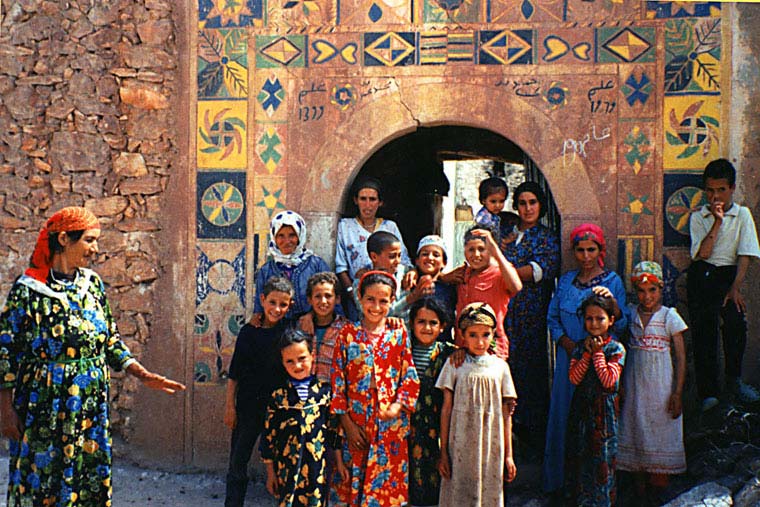
Morocco has a rich and diverse cultural heritage shaped by the historical interactions between the Berbers and Arabs. The Berbers were the original inhabitants of the region, with their roots tracing back thousands of years. They had established various kingdoms and tribes across Morocco long before the arrival of the Arabs.
In the late 7th century, Arab armies began expanding across North Africa and the Middle East, spreading the Islamic faith. As they reached Morocco, many Berbers embraced Islam, becoming an integral part of the Muslim community. Over time, the distinction between Berbers and Arabs became less pronounced, and they were accepted as fellow Muslims by both their Arab counterparts and other Berbers who had converted to Islam.
During the Arab conquest of the Iberian Peninsula, which was launched from Morocco, Berber troops played a significant role. They formed a considerable portion of the Muslim armies, demonstrating their military prowess and contribution to the expansion of Islamic territories.
While many Moroccans today have mixed Berber and Arab ancestry, some individuals identify as pure Arabs. However, in regions such as the Rif and Atlas Mountains, as well as the Souss Valley, small communities of pure Berbers have preserved their ancient languages and cultural practices. These distinct Berber groups maintain a strong sense of identity and pride in their heritage.
In recent years, there has been a resurgence of Berber pride and cultural revitalization. Television programs are now broadcasted in Berber languages, and efforts have been made to incorporate the teaching of Berber languages in schools. Despite this, Arabic remains the dominant language in the country, serving as the lingua franca and the official language of Morocco.
The coexistence and intermingling of Berber and Arab cultures have greatly influenced the country’s traditions, customs, and social fabric. The fusion of these two vibrant cultures has shaped the unique identity of Morocco, creating a diverse and harmonious society that celebrates its rich heritage.
Conclusion
In conclusion, Morocco is a captivating destination that offers a wealth of experiences for travelers. From the bustling markets of Marrakesh to the serene beauty of the Sahara Desert, this North African gem has something for everyone. Immerse yourself in the rich history and vibrant culture as you explore ancient cities, visit magnificent mosques, and indulge in delectable Moroccan cuisine.
The country’s diverse landscapes provide ample opportunities for outdoor enthusiasts, with trekking in the Atlas Mountains, skiing in the High Atlas, and camel trekking in the Sahara being just a few of the thrilling activities available. The coastal regions offer water sports, fishing, and relaxing beach getaways.
Traveling around Morocco is relatively affordable, making it an ideal destination for budget-conscious travelers. The local hospitality is legendary, with Moroccans lifestyle known for their warm and welcoming nature. However, it’s important to be respectful of local customs and traditions, particularly during religious festivals and in more conservative areas.
When it comes to accommodation, there is a range of options to suit every budget, from luxury riads to budget-friendly hotels and guesthouses. Exploring the colorful souks and markets is a must-do, where you can find unique handicrafts, traditional textiles, and aromatic spices to bring back as souvenirs.
In terms of practicalities, it is recommended to check visa requirements and ensure you have the necessary vaccinations before traveling to Morocco. Taking basic precautions regarding health and safety, such as carrying small amounts of cash and staying vigilant against potential scams, will contribute to a smooth and enjoyable trip.
As you plan your adventure in Morocco, consider the best time to visit, taking into account the weather and any cultural events or festivals you may want to experience. Whether you’re a history buff, an adventure seeker, or simply in search of a unique cultural experience, Morocco promises to captivate and inspire you at every turn.
So, pack your bags and embark on a journey to Morocco. Discover the magic of this enchanting country, immerse yourself in its vibrant traditions, and create memories that will last a lifetime. Morocco awaits you with open arms, ready to unveil its hidden treasures and provide an unforgettable travel experience.


